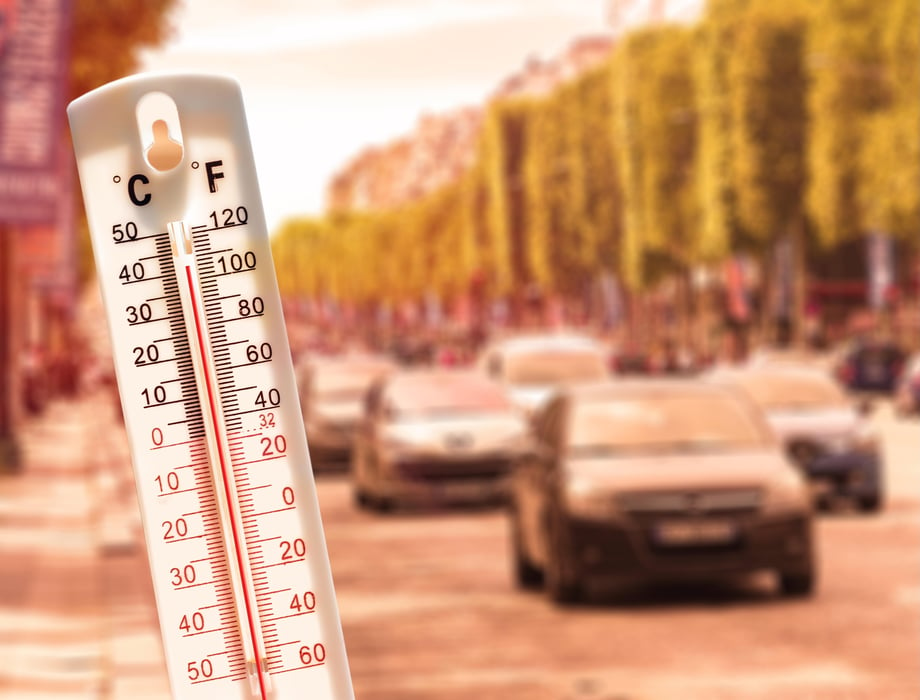Climate Change’s Extreme Temperatures Could Mean More Heart Deaths

MONDAY, Dec. 12, 2022 (HealthDay News) -- Both extremely hot and very cold days take their toll on people who have heart disease, particularly those with heart failure.
A new multinational analysis of 32 million heart-related deaths over the past 40 years found more occurred on days with severe temperatures, an issue that climate change could make even worse.
Although the greatest number of deaths were due to heart failure, extreme weather also led to a rise in stroke; arrhythmia (an irregular heartbeat); and ischemic heart disease (which is caused by narrowed heart arteries).
“The decline in cardiovascular death rates since the 1960s is a huge public health success story as cardiologists identified and addressed individual risk factors such as tobacco, physical inactivity, type 2 diabetes, high blood pressure and others,” according to researcher Dr. Barrak Alahmad. He is a fellow at Harvard T.H. Chan School of Public Health in Boston.
"The current challenge now is the environment and what climate change might hold for us," Alahmad said in a news release from the American Heart Association (AHA).
Heart disease is the leading cause of death worldwide.
To study the impact of temperatures, researchers analyzed data for 32 million heart-related deaths in 27 countries between 1979 and 2019.
The investigators compared heart-related deaths on the hottest and the coldest 2.5% of days in 567 cities with those on days when temperatures were optimal.
For every 1,000 heart-related deaths, there were an additional 2.2 deaths on days with extreme heat. There were also 9.1 additional deaths on days with extreme cold, the findings showed.
Among people with heart failure, there were 2.6 additional deaths on extremely hot days and 12.8 on extremely cold days, the researchers reported.
“One in every 100 cardiovascular deaths may be attributed to extreme temperature days, and temperature effects were more pronounced when looking at heart failure deaths,” said co-author Dr. Haitham Khraishah. He is a cardiovascular disease fellow at the University of Maryland School of Medicine, in Baltimore.
“While we do not know the reason, this may be explained by the progressive nature of heart failure as a disease, rendering patients susceptible to temperature effects,” Khraishah said. "This is an important finding since one out of four people with heart failure are readmitted to the hospital within 30 days of discharge, and only 20% of patients with heart failure survive 10 years after diagnosis.”
Targeted warning systems and advice for people who are vulnerable are needed to prevent heart-related deaths during temperature extremes, the researchers suggested.
“We need to be on top of emerging environmental exposures," Alahmad said. "I call upon the professional cardiology organizations to commission guidelines and scientific statements on the intersection of extreme temperatures and cardiovascular health. In such statements, we may provide more direction to health care professionals, as well as identify clinical data gaps and future priorities for research.”
The researchers said they were unable to make global estimates because there was insufficient data from South Asia, the Middle East and Africa.
“This study contributes important information to the ongoing societal discussions regarding the relationship between climate and human health," said AHA past president Dr. Robert Harrington, chair of medicine at Stanford University, in California.
"More work is needed to better define these relationships in a world facing climate changes across the globe in the years ahead, especially as to how those environmental changes might impact the world’s leading cause of death and disability, heart disease,” Harrington added.
The study findings were published Dec. 12 in the American Heart Association’s journal Circulation.
More information
The U.S. Centers for Disease Control and Prevention has more on heart failure.
SOURCE: American Heart Association, news release, Dec. 12, 2022
Related Posts
La mayoría de las pruebas de COVID-19 gratuitas se han enviado, según la Casa Blanca
MIÉRCOLES, 23 de febrero de 2022 (HealthDay News) -- Más de un 90 por ciento de...
AI Came Close to Residents, Medical Students With Clinical Reasoning in Studies
WEDNESDAY, July 19, 2023 (HealthDay News) -- ChatGPT may have some of the...
Poor Verbal Memory Tied to Psychiatric Hospitalization With Affective Disorders
FRIDAY, May 19, 2023 (HealthDay News) -- Poor verbal memory increases the risk...
States That Restrict Abortions Have More Maternal, Infant Deaths
WEDNESDAY, Dec. 14, 2022 (HealthDay News) -- In U.S. states with more...
